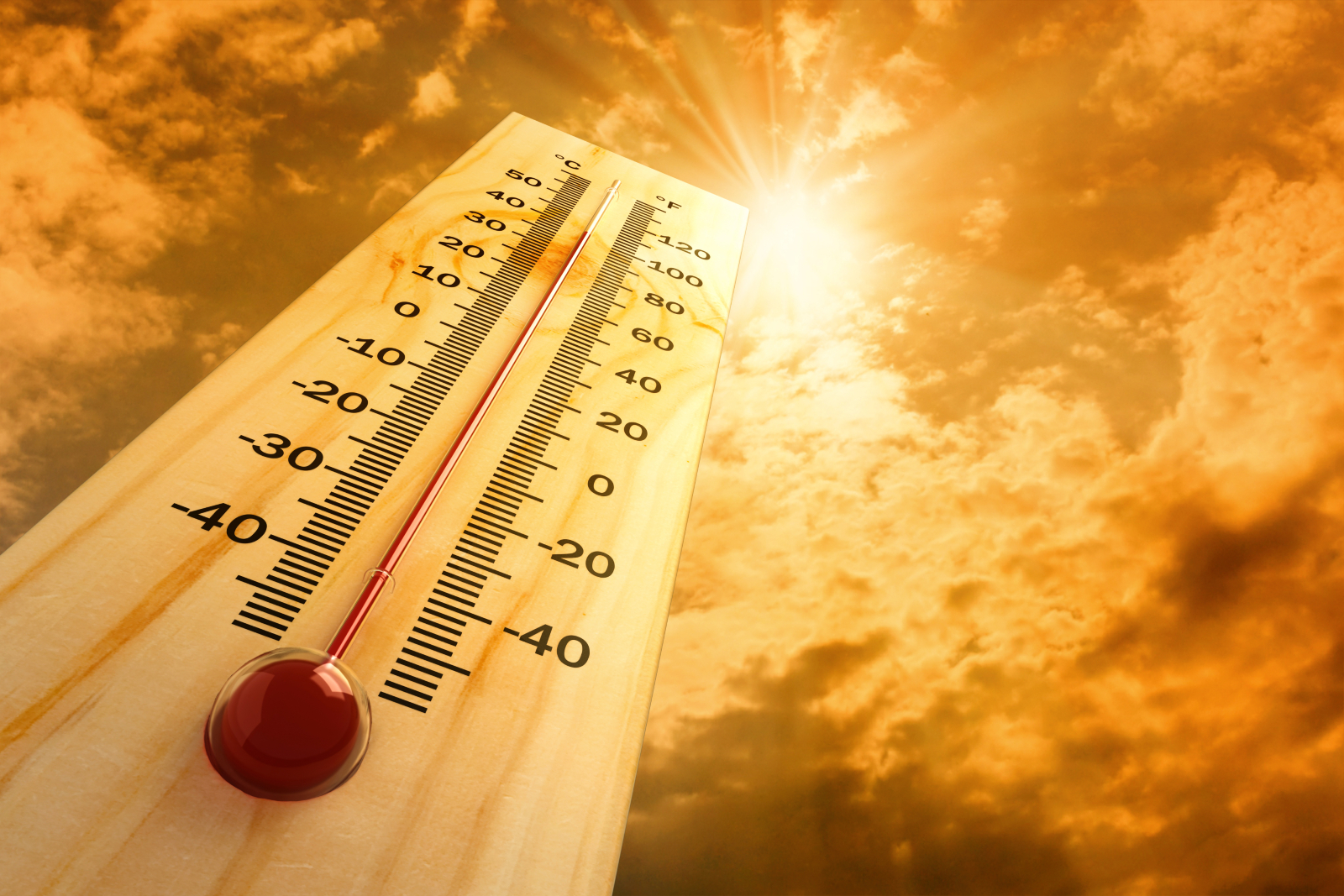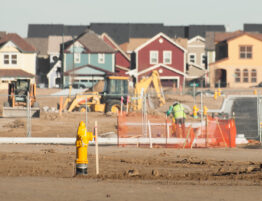
While holidaymakers in the UK may be enjoying the recent heatwave, construction workers and others who mostly work outside may be finding the weather slightly more uncomfortable.
With temperatures heading above into the mid-30°Cs, some forecasters are warning that by Sunday, we could exceed the UKs record for the hottest day (which was 38.7°C in July 2019). Added to the fact that the heatwave is expected to continue for at least another eight days, the Met Office have issued an Amber weather warning for extreme heat, meaning that it could result in travel disruption, serious illness and even danger to life.
To help everyone stay safe and well, we’re focusing today’s blog on the health impacts of hot weather and what you can do to avoid them.
Impact on health
Because the UK is not typically known for it’s sizzling weather, you might be thinking that a warning about ‘serious illness’ and ‘danger to life’ is a bit over-dramatic.
However, things are changing and just last year, scientists provided detailed evidence of how the UK is already undergoing disruptive climate change with increased rainfall, sunshine and temperatures. The fact that all of the top ten warmest years in the UK (since records began in 1884) have occurred since 2002 was just one of the findings published in the UK State of the Climate report.
The impact that heat can have on people’s health is definitely no joke.
In 2020, during three heatwave periods, there were over 2500 heat-related deaths in the UK. Every year, much higher numbers of people suffer with heat-related problems like sunburn and dehydration or serious conditions like heat stroke or skin cancer.
Here are three of the big issues to watch out for and what you can do to minimise the risks.
1. Sunburn
While some exposure to the Sun’s UV rays supports a healthy life (e.g. providing us with vitamin D), anything longer than around 15-20 minutes without sun protection can result in sunburn and its dangerous consequences.
As well as causing short-term pain, blisters and peeling skin, sunburn can have longer-term effects, including a higher risk of melanoma skin cancers.
Skin cancer is now the most common cancer in the world, responsible for the deaths of over 2,500 people each year in the UK. Because of their heightened exposure to the sun, people who mostly work outdoors face ten times more exposure to the sun’s UV rays and so are at a higher risk. Each day, five outdoor workers in Britain are diagnosed with skin cancer.
Minimise the risk with the five S approach:
- SLIP on Sun protective clothing – Keep covered up.
- SLOP on SPF30 or higher sunscreen – Apply this 15 – 20 minutes before going outside to all exposed skin areas, then re-apply every 2 hours (more frequently if perspiring).
- SLAP on a hat – Where possible wear a hat with ear, neck and face protection.
- SLIDE on some sunglasses – Wear sunglasses (PPE provided) with total UV protection, wrap around lenses or wide arms.
- SEEK shade – Work in shaded areas where possible. In areas where the sun is particularly strong, try to schedule the work for times when the UV rays will be less intensive (before 10am or after 3pm). Stay in the shade during breaks.
2. Dehydration
Take a look at this Toolbox Talk on UV Safety for more information and advice.
If you’re dehydrated, this basically means your body is losing more fluids than it is taking in. If left untreated, this can lead to problems with the skin, digestion and the build-up of toxins.
Minimise the risk with prevention or quick action:
As we all know, prevention is better than the cure so the key here is to make sure you drink plenty of fluids at regular intervals during the working day. When temperatures are high, try to avoid sugary, carbonated or caffeinated drinks and stick to lots of water.
When prevention measures fail, the warning signs of dehydration include feeling thirsty, tiredness and dizziness. This is when quick action comes into play and in most cases that will simply mean drinking lots of fluids (as above, water is best) and taking a moment to rest while your body rebalances itself. However, should any symptoms get worse or other concerns arise like confusion, having a weak pulse or feeling too sick to take in fluids, then this might be a more severe case of dehydration and medical attention should be sought.
3. Heat stress and heat stroke
Our bodies are usually pretty good at controlling our internal temperature, finding ways to stay warm when the weather is cold (like sending more blood to protect vital organs) and to remain cool when its hot (like perspiring). Extreme weather (hot or cold) can disrupt this.
When the body overheats, this is called ‘Heat stress’, a serious problem that can cause a wide range of symptoms, including lethargy, stumbling, confusion, slurred speech, dizziness, cramps, rashes and collapse.
Heat stroke is an even more serious condition as this is when the body completely loses the ability to control its temperature. If untreated this can lead to death or permanent disability.
Signs to look out for include:
- An extremely high body temperature (higher than 39°C)
- Red, hot and dry skin with no visible sweating
- Rapid, strong pulse
- Throbbing headache
- Dizziness and/or nausea
- Unconsciousness
Minimise the risk with prevention or quick action:
For outdoor workers, some preventative measures include keeping your head covered in the sun, staying well hydrated, seeking shade during all rest periods, and scheduling the day’s work appropriately. By that, we mean planning ahead so that as much of the most strenuous work is carried out during the cooler times of the day (avoiding that midday heat wherever possible).
Understanding and keeping a look out for the warning signs among colleagues is another important way to ensure everyone stays safe, as is taking quick action in any suspected cases of heat stress or heat stroke.
If you notice a colleague with any of the signs of heat stress, get them out of the sun, rested and hydrated as soon as you can. If you suspect a case of heat stroke, however, the priority is to call emergency services and they will advise you on what to do next.
We know many people love to see a bit of sun and, if you’re lucky enough to be enjoying a holiday or some downtime while reading this, we wouldn’t want to spoil anyone’s fun. For those who have to work through the heat, please stay cautious, follow this guidance and keep well.
13.07.2022
Feature image: VladisChern/Shutterstock.com








